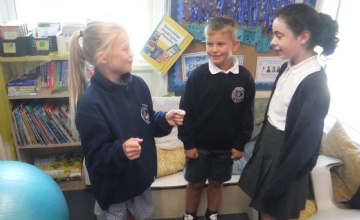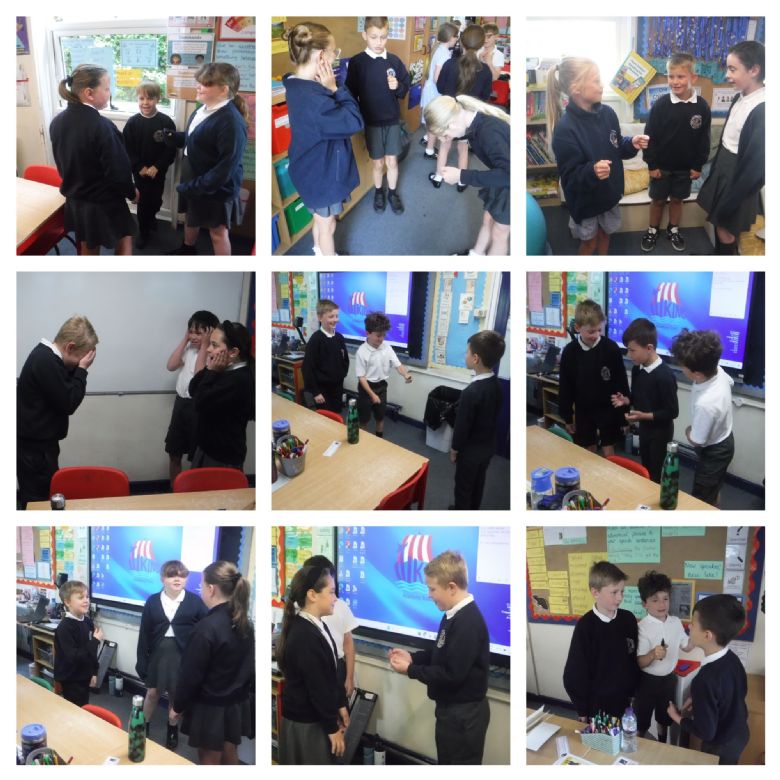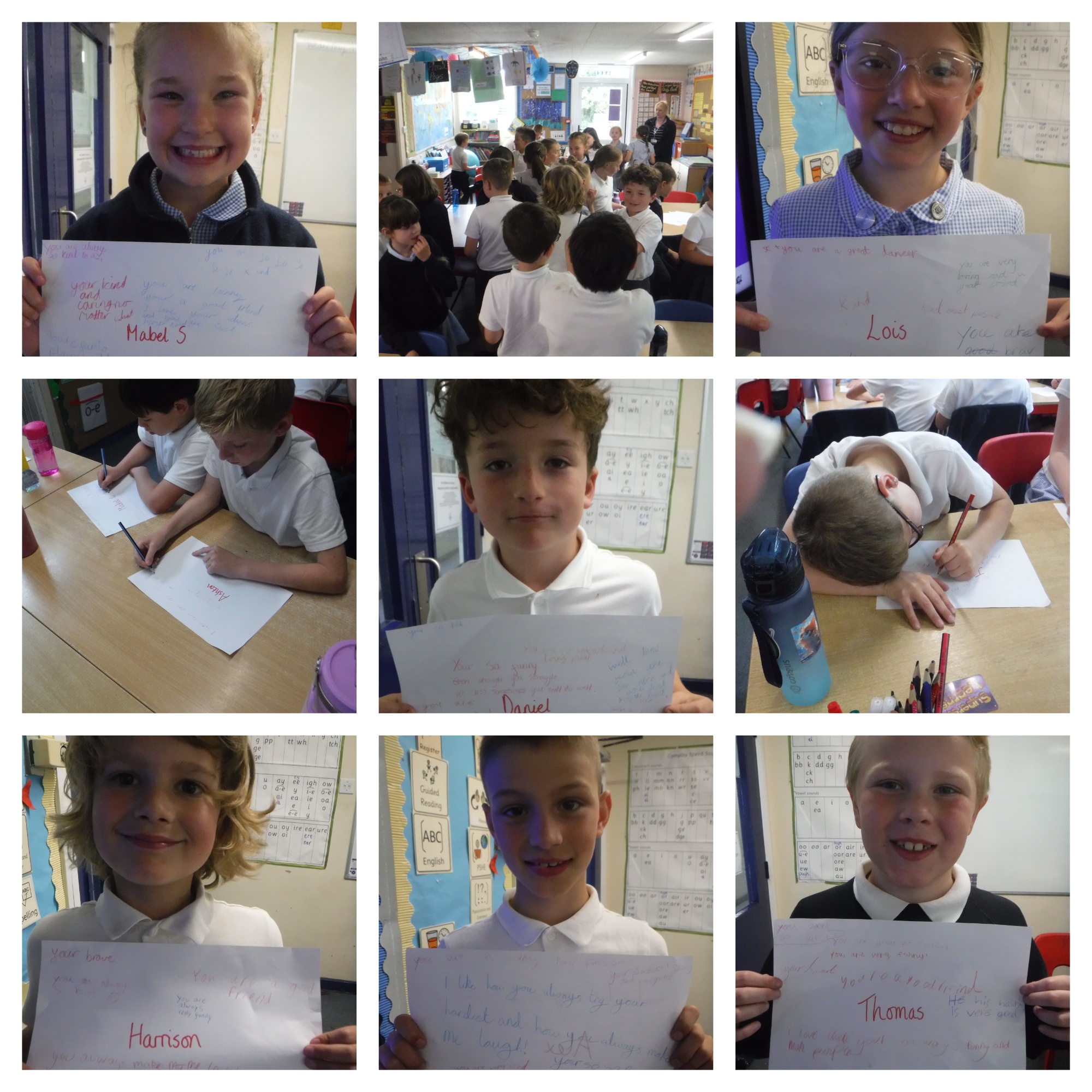Weekly News 13.6.25

We have had another great week in Year 4. Now that the sunshine and warm weather have arrived, please can your child bring a sun hat to school and remember to bring their water bottle. Here is what we have been up to this week...
Maths
In maths this week we have been going over how to convert measures. We have learnt to do this with volume, mass and length. The children revised these key conversions; 1km = 1000km, 1kg = 1000g, 1l = 1000ml and 1m = 100cm, and using these, worked out other key conversions such as ½ km = 500m, ¼ kg = 250g and ¾ m = 75cm. They then converted measures from one unit to another such as:
3l = 3000ml 9 ½ m = 950cm 1250g = 1 ¼ kg
Next week, we will be learning to multiply 2-digit numbers by 2-digit numbers. Some of us will use the expanded grid method that we learnt last term and some of us will learn how to do this using long multiplication (column method).
English
In English this week, we have continued to read our story ‘I was a rat!” by Phillip Pullman. The children learnt some more skills needed to write a story with dialogue. They learnt to structure their speech sentences in different ways, to use complex and compound sentences and to use fronted adverbials to start their sentences. We rewrote scenes from the story and also made up imaginary scenes using the story as a prompt. In guided reading we clarified the meaning of words such as ‘hesitate’ and ‘antique’. They then used all the skills that they had learnt in this unit to write some brilliant ‘showpieces’ on Friday.
Here we are retelling part of the story of 'I was a rat' using role play in guided reading...

Next week, we will be learning to write newspaper reports.
Thematic
We started our new themed learning unit this week called ‘My Home, your home’. This week, we have been learning about Geography. We found out about the Mediterranean Sea and identified the countries around the sea on a map. We then focused on Spain and learnt about the geographical features of the country. The children wrote about the similarities and differences between Spain and the UK. We found out that even though Spain is a much larger country, it has a smaller population than the UK. In the next lesson, we found out about time zones around the globe. Using a very clever map, the children worked out what the time would be in cities around the World at a certain time in the UK. E.g. If it was 10am in the UK, it would be 7pm in Sydney, Australia. We finished off the week by learning about a new geography word, ‘topography’. This just means the landforms on the surface of the Earth such as mountains, rivers, canyons, valleys, volcanoes, rivers, coastlines, plains and plateaus. We found out about the topography of Spain and how this has affected how the land is used. For example, people have not built towns on mountainsides, as the land is too steep, and they don’t often build in the bottom of a valley, as the land is prone to flooding.
Next week, we will be learning about classification of animals and plants in science.
In PSHE last week, we practised giving others compliments and played a game that ended with everyone having lots of lovely compliments written about them. We focussed on giving compliments that were not focussed on someone's appearance but on their qualities and character. Here we are with our compliments...

Spellings
This week’s spellings are the same as last week.
Mrs Cousins and Miss Stephen’s groups:
capture picture structure nature future fracture puncture culture moisture texture recent remember separate
Challenge words: signature literature
Mr Oxley’s group:
oil foil boil soil join moist point coin spoil plant
Challenge words: toilet ointment
Love to Learn
We will be learning about animals in science next week. We would like you to find out about these animal groups: birds, fish, mammals, reptiles and amphibians. What makes an animal be classified as a bird, what does it have to have/do? Explain this for each of the 5 groups. Also, give us examples of animals that would go in each group. You can present what you find out in whatever way you choose. You could create an information sheet(s), a poster, a presentation that you email to your teacher, label pictures in your book – it is up to you. We look forward to seeing your learning.
Extra challenge – also find out about evergreen and deciduous trees – what is the difference? Give examples of each type.
Please could this challenge be handed in by Wednesday 18th June.
Messages
-
As part of our ‘Great Science Share’ week at Chilton, we would like to invite you in after school on Monday 23rd June at 3.15pm for the children to share what they have learnt in science.
Dates to remember
23rd June – Book fair this week
27th June – Thrive coffee morning 9am in hall
1st July – Music evening at 6pm
4th July – Summer fair from 3.30pm
10th July Sports Day – KS2 9.15-12 Reception and KS1 1.30-3
11th July – Reports go out to parents
14th, 15th 16th July – Transition days; children to spend these days with their new class teachers
17th July – Inflatable fun day in school for all children
18th July – School finishes at 2pm for Reception to Year 5
Many thanks
We hope you have a lovely weekend,
Mrs Cousins and Mr Oxley




